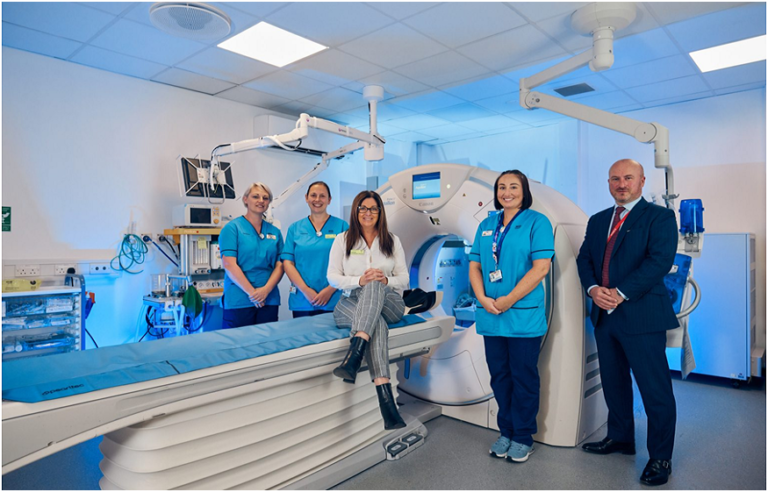
Women’s reproductive health helps shape individual lives, family dynamics, and the health of future generations. The journey to motherhood faces unique challenges stemming from gender-related differences, sociocultural factors, and health disparities. That necessitates access to quality reproductive services for women to safeguard and promote optimal health outcomes from adolescence to motherhood. OBGYN experts effectively manage women’s health challenges, ensuring safe delivery for pregnant mothers and safeguarding the health of mother and child.
1. Quality Reproductive Services
Women’s health and sexuality is delicate and demands specialized knowledge and attentive care. Access to excellent healthcare services is thus crucial. Vital reproductive health interventions include contraception, prenatal care, childbirth services, and family planning.
Accessing quality OBGYN services facilitates timely screenings, accurate diagnoses, and prompt interventions for emerging issues. Such services are especially critical during pivotal life stages, such as when women desire to conceive, as well as during pregnancy and childbirth, whether through normal or via Cesarean section. Early detection helps maintain good health while preventing complications.
Experienced doctors in this field offer empowering guidance and support on reproductive and sexual health, contributing to safe delivery, quality of care, and peace of mind. Access to quality reproductive healthcare services for women ensures that every woman, irrespective of her condition, receives quality care, promoting women’s reproductive health, mental well-being, fairness, and health equity.
2. Simplified and Relevant Reproductive Education
Educating women about their reproductive and sexual health is crucial in enhancing personal responsibility while empowering informed choices, overall well-being, and autonomy. Comprehensive sexual education and health literacy play pivotal roles in this process, offering women accurate information and essential skills to navigate various aspects of their reproductive journey confidently. Experienced gynecologists take time to understand each patient’s unique needs and concerns and then educate pregnant women on how to undertake self-care.
Experienced reproductive health doctors also incorporate modern resources like online platforms and open communication channels, thus fostering proactive strategies for women to manage their health effectively during pregnancy or other reproductive stages. That empowers women to maintain a responsible lifestyle, from lifestyle modifications to seeking immediate treatment and psychological support when necessary.
The proactive approach builds resilience, from preventing unintended pregnancies to safeguarding pregnancies and ensuring safe deliveries. Such education and empowerment initiatives extend beyond individual care to community outreach, where culturally sensitive approaches help bridge gaps in care, promoting women’s reproductive health and well-being.
3. Addressing Reproductive Health Mental Related Needs
Mental health is a paramount concern regarding women’s reproductive health due to its profound impact on overall well-being. Experienced doctors offering OBGYN care acknowledge the significant effects of reproductive health experiences such as infertility, pregnancy loss, and postpartum depression on mental health.
An experienced gynecologist will prioritize mental well-being by integratingmental care-related approaches to reproductive healthcare, including routine screening for mental health concerns during prenatal and postpartum visits.
By destigmatizing mental health issues related to reproductive health in women, these professionals encourage open dialogue and facilitate access to supportive services, empowering women to seek assistance when necessary. Proactively addressing mental health complications related to pregnancies mitigates risks, leading to positive maternal and fetal outcomes and ultimately fostering healthier families.
4. Guarding Safe Childbirth
The pregnancy journey can be long and complex, requiring optimal care and professional guidance to navigate successfully. However, the culmination of this journey of giving birth is a special and deeply significant moment that deserves optimal support and attention. At the heart of ensuring secure and quality childbirth lies the presence of skilled gynecologists adept at navigating the intricacies of labor and delivery.
A clean and well-equipped environment ensures safety for both mother and newborn. Also, experienced doctors provide respectful and supportive maternal care while providing access to reliable emergency obstetric interventions. Such a strategy helps enhance physical well-being and nurture the mother’s emotional resilience.
However, adequate after-birth care for the mother and the newborn is essential for monitoring their health and providing nursing support, especially to new mothers, and addressing any new challenges. That ensures a smooth transition to motherhood.
In conclusion, women must prioritize their reproductive and sexual health by adopting a proactive stance in seeking quality obstetrics and gynecology services. The commitment ensures women’s safety regarding their reproductive and sexual health while safeguarding safe delivery. Moreover, experienced gynecologists will optimize postnatal care to ensure a smooth transition into motherhood, providing support and guidance for breastfeeding, emotional well-being, and physical recovery. They will also be vigilant in implementing early interventions for any complications, thereby maximizing the chances of optimal health outcomes and ensuring comprehensive maternal healthcare.





